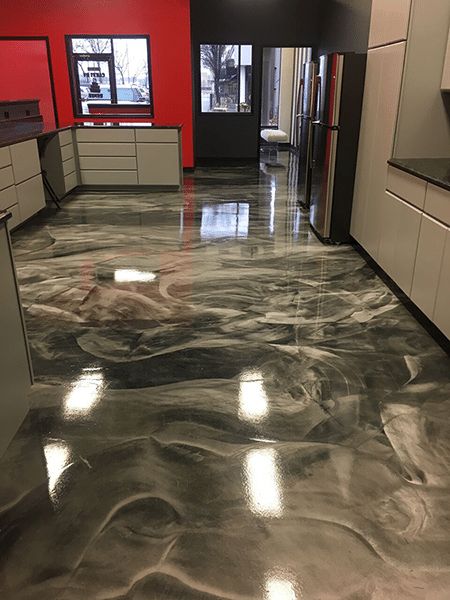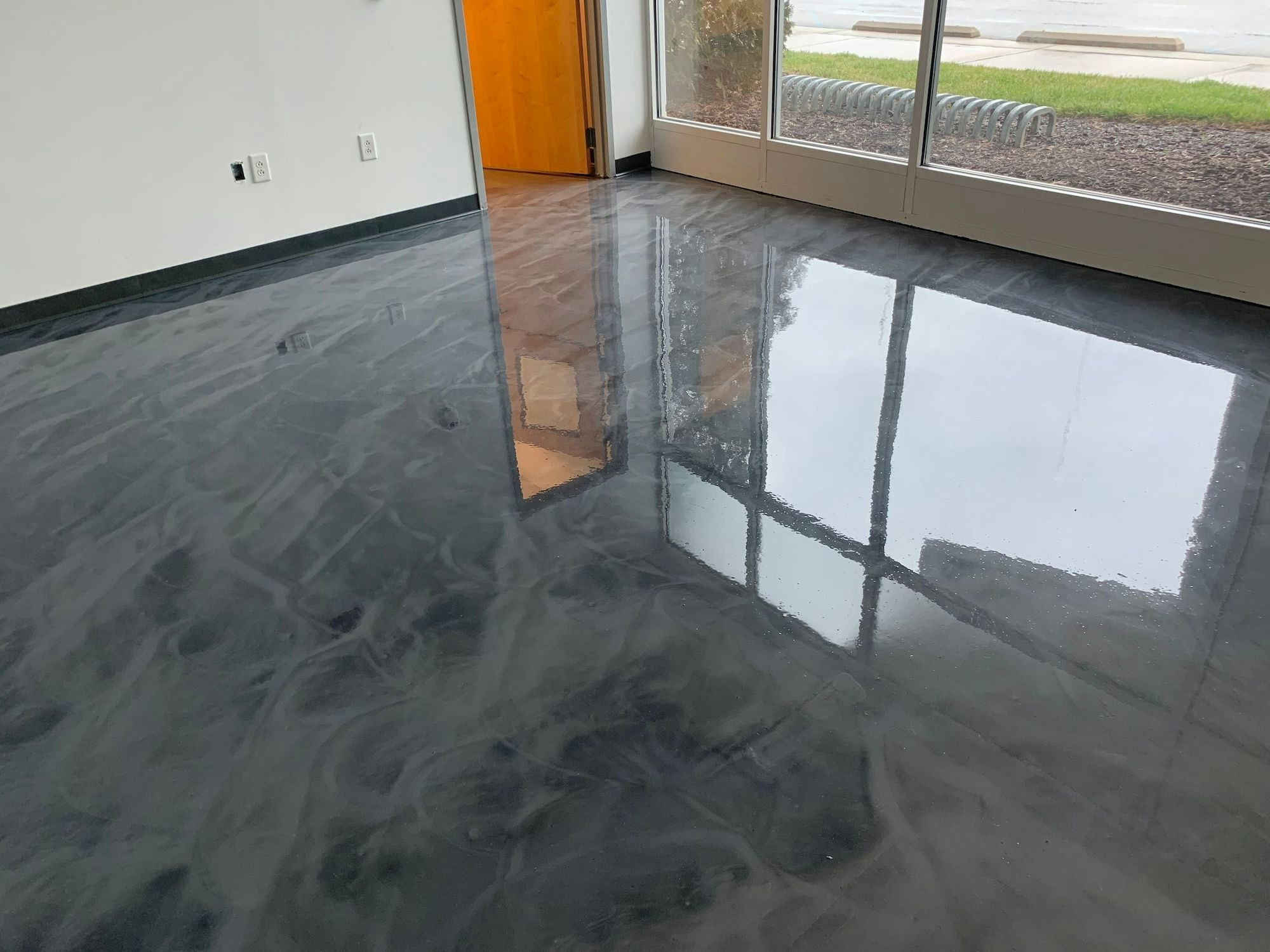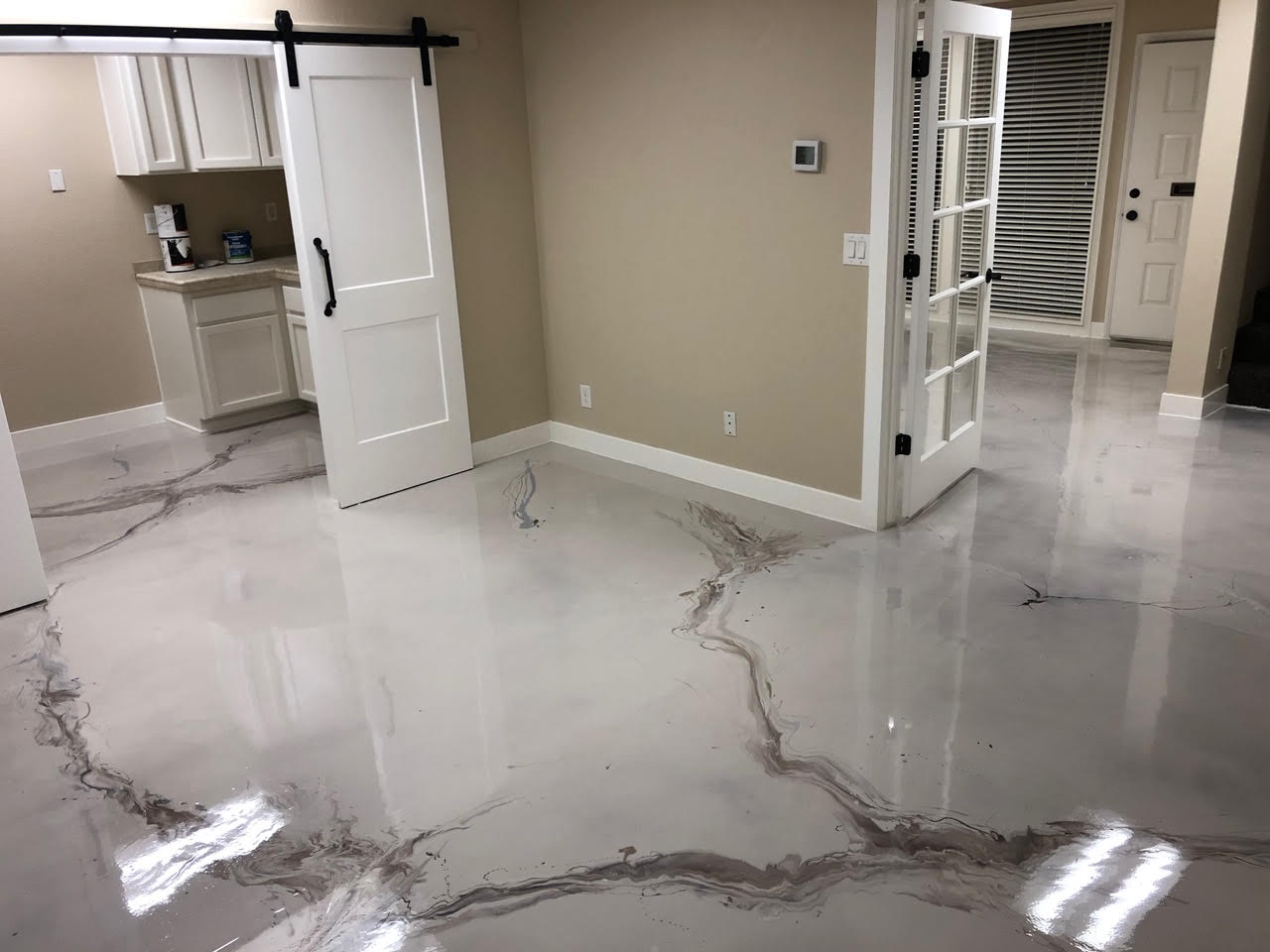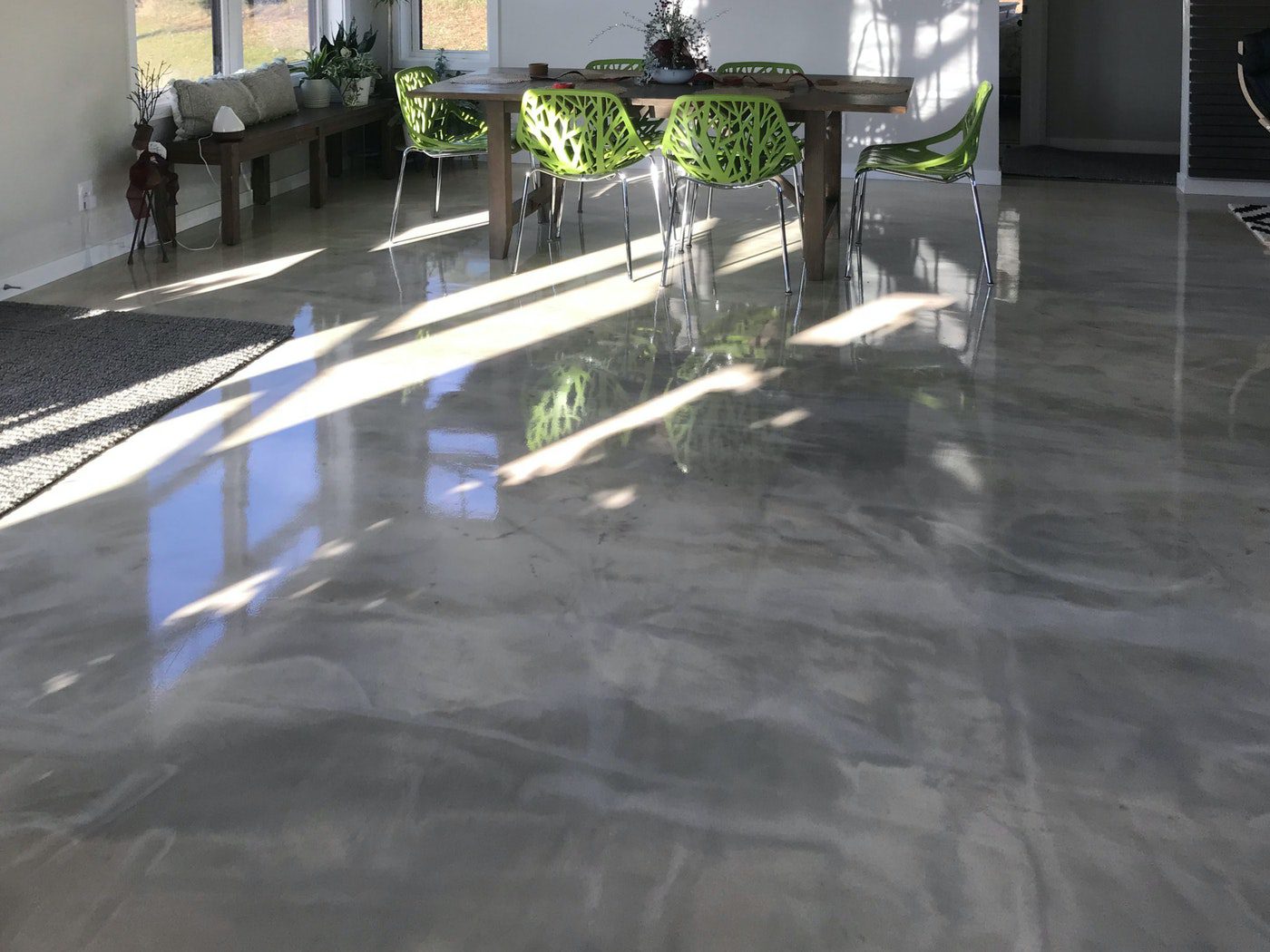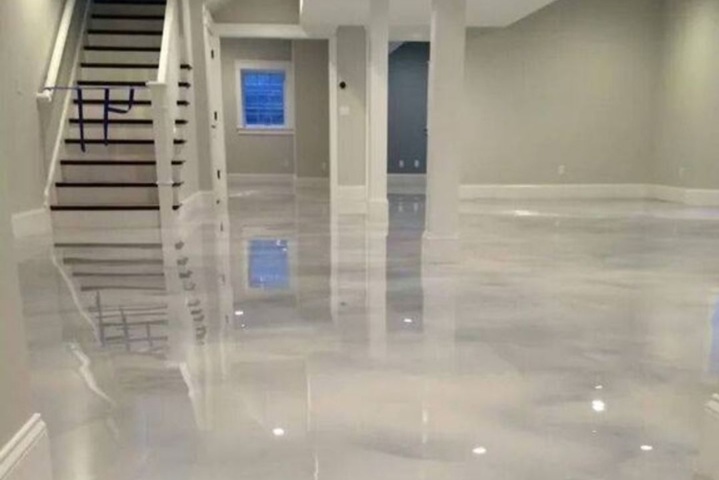Benefits of Residential Epoxy Floor Coating
Residential epoxy floor coating offers numerous advantages that make it a popular choice for homeowners. Whether you are looking for a durable flooring option, easy maintenance, or enhanced aesthetics, epoxy floor coating can meet your needs. Here are some of the key benefits of using residential epoxy floor coating:
- Durability: One of the primary benefits of epoxy floor coating is its exceptional durability. Epoxy creates a strong bond with the concrete surface, resulting in flooring that can withstand heavy foot traffic, impacts, and other wear and tear. This makes it an ideal choice for high-traffic areas in residential spaces, such as garages, entryways, and basements. With epoxy floor coating, you can enjoy a long-lasting flooring solution that can withstand the test of time.
- Easy Maintenance: Residential epoxy floor coating is incredibly easy to maintain, making it a practical choice for busy homeowners. The smooth and seamless surface created by epoxy makes it resistant to dirt, dust, and stains. Regular sweeping and occasional mopping are usually enough to keep the floor clean and looking its best. Furthermore, the non-porous nature of epoxy makes it resistant to water and chemicals, preventing any potential damage from spills or leaks. With minimal effort, you can maintain a pristine and attractive floor throughout your home.
- Enhanced Aesthetics: Another advantage of residential epoxy floor coating is its ability to enhance the overall aesthetics of your living space. Epoxy is available in a wide range of colors, patterns, and finishes, allowing you to choose a style that complements your home’s interior design. Whether you prefer a sleek and glossy finish or a more textured and decorative look, epoxy can be customized to suit your preferences. By incorporating epoxy floor coating, you can transform your plain concrete floors into a visually appealing feature that adds value to your home.
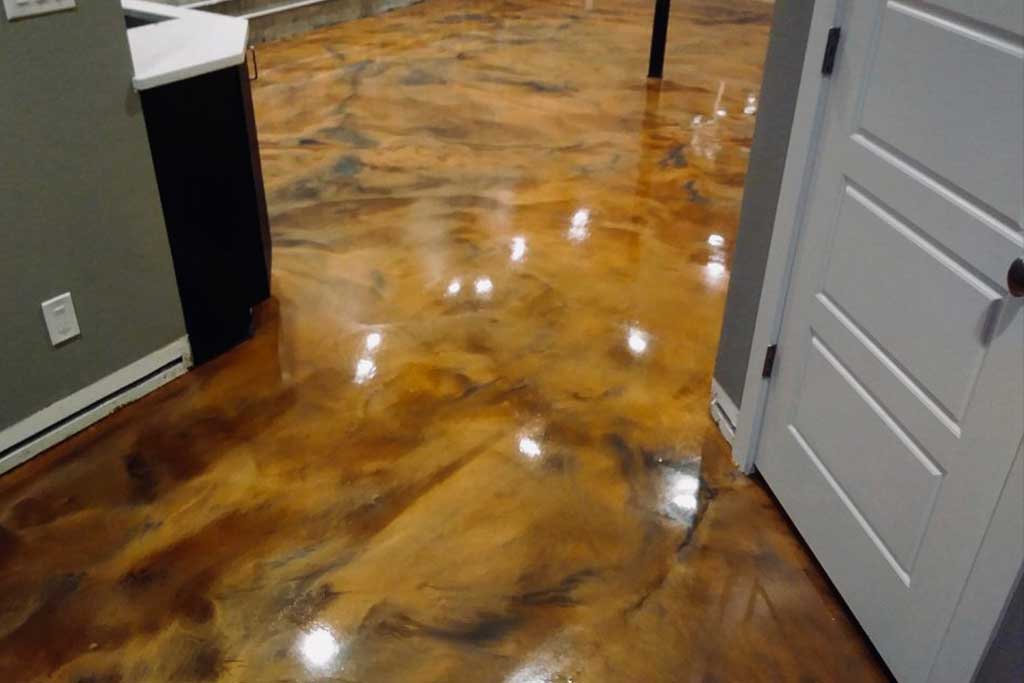
Step-by-Step Guide to Applying Residential Epoxy Floor Coating
Surface Preparation:
1. Clear the area: Before applying epoxy floor coating, remove all furniture, appliances, and other items from the area to create a clean and empty space.
2. Clean the surface: Thoroughly sweep or vacuum the floor to remove any dust, dirt, or debris. Next, use a mild detergent and warm water to clean the surface. Rinse it thoroughly and allow it to dry completely.
3. Repair any damages: Inspect the floor for cracks, holes, or other damages. Use a suitable filler or epoxy patching compound to repair these imperfections. Sand down any rough areas until the surface is smooth and even.
Priming the Floor:
4. Choose the appropriate primer: Select a high-quality epoxy primer that is specifically designed for residential applications. Ensure that it is compatible with the type of flooring you have.
5. Mix the primer: Follow the manufacturer’s instructions to prepare the primer. Combine the resin and hardener components thoroughly using a stir stick or mixer until they are well blended.
6. Apply the primer: Using a roller or brush, apply a thin and even coat of primer to the entire floor surface. Work in small sections to ensure proper coverage. Allow the primer to dry according to the manufacturer’s guidelines.
Applying the Epoxy Coating:
7. Choose the epoxy coating: Select a residential epoxy floor coating that suits your desired finish and meets your specific needs. Consider factors such as durability, chemical resistance, and aesthetic appeal.
8. Mix the epoxy coating: Prepare the epoxy coating as per the manufacturer’s instructions. Combine the resin and hardener components thoroughly, ensuring no streaks or lumps remain.
9. Apply the epoxy coating: Start by cutting in the edges using a brush, ensuring even coverage along the perimeter of the floor. Then, use a roller to apply the epoxy coating to the rest of the floor. Work in small sections and roll the epoxy in a back-and-forth motion to achieve an even layer. Avoid over-application and ensure that the coating is spread evenly.
10. Allow the epoxy to cure: After applying the epoxy coating, allow it to cure as per the manufacturer’s instructions. This typically involves letting it dry for a specific duration without any foot or vehicle traffic. Maintain proper ventilation during the curing process.
Choosing the Right Residential Epoxy Floor Coating
There are several types of epoxy floor coatings available for residential use, each with its own unique features and benefits. It is important to understand these options in order to select the most suitable one for your specific needs and preferences.
Water-based epoxy coatings: These coatings are popular for residential use due to their low VOC (volatile organic compound) content and ease of application. They offer a glossy finish and are available in various colors. Water-based epoxy coatings are ideal for areas with light foot traffic and minimal exposure to chemicals or abrasion.
Solvent-based epoxy coatings: These coatings are more durable and resistant to chemicals and abrasion compared to water-based options. They provide a high-gloss finish and are available in a wide range of colors. Solvent-based epoxy coatings are suitable for areas with moderate to heavy foot traffic, such as garages, basements, and workshops.
100% solids epoxy coatings: This type of epoxy coating is the most durable and resistant option available for residential use. It is highly resistant to chemicals, abrasion, and impact, making it ideal for high-traffic areas like commercial kitchens, warehouses, and industrial facilities. 100% solids epoxy coatings are also available in a variety of colors and finishes.
Maintaining and Caring for Residential Epoxy Floor Coating
To ensure the longevity and aesthetic appeal of your residential epoxy floor coating, it is essential to follow proper maintenance practices. By implementing the right cleaning techniques, protective measures, and occasional touchups, you can keep your epoxy floor coating in optimal condition. Here are some best practices to consider:
Regular Cleaning:
Regular cleaning is crucial to maintain the appearance and cleanliness of your residential epoxy floor coating. Sweep or dust mop the floor daily to remove dirt, dust, and debris. For a more thorough cleaning, use a soft-bristle broom or a microfiber mop with a mild detergent solution. Avoid using harsh chemicals or abrasive cleaners as they can damage the epoxy coating.
Spill Cleanup:
Promptly clean up any spills on your epoxy floor coating to prevent staining or damage. Use a paper towel or a soft cloth to blot the spill, then clean the area with a mild detergent and water solution. Avoid using abrasive materials or scrub brushes, as they can scratch the epoxy surface.
Protective Measures:
To protect your residential epoxy floor coating from scratches, dents, and other damage, consider using protective measures. Place doormats at entryways to trap dirt and debris from outside. Use furniture pads or felt protectors under heavy furniture to prevent scratching. Avoid dragging heavy objects across the floor, as it can cause abrasions to the epoxy coating.
Avoid Excessive Moisture:
Excessive moisture can damage the epoxy floor coating over time. Avoid mopping the floor with excessive water and promptly clean up any spills or leaks. If you live in a humid climate or have areas prone to moisture, consider using a dehumidifier or ventilation system to reduce humidity levels.
Occasional Touchups:
Over time, your epoxy floor coating may develop minor scratches or wear in high-traffic areas. To maintain its appearance, occasional touchups may be required. Consult with a professional epoxy flooring contractor to determine the best touchup options for your specific epoxy coating.
Epoxy Flooring Company Floor Coatings Contractor Sacramento
Residential Epoxy Floors » Custom Concrete Floors » TaylorMade DCE
DIY: Homeowner Installs Designer Metallic Epoxy Floor Coating
Residential Epoxy Floor Coatings
Epoxy Flooring Installers u2014 Epoxy Flooring Contractors, Terrazzo
Related Posts:
